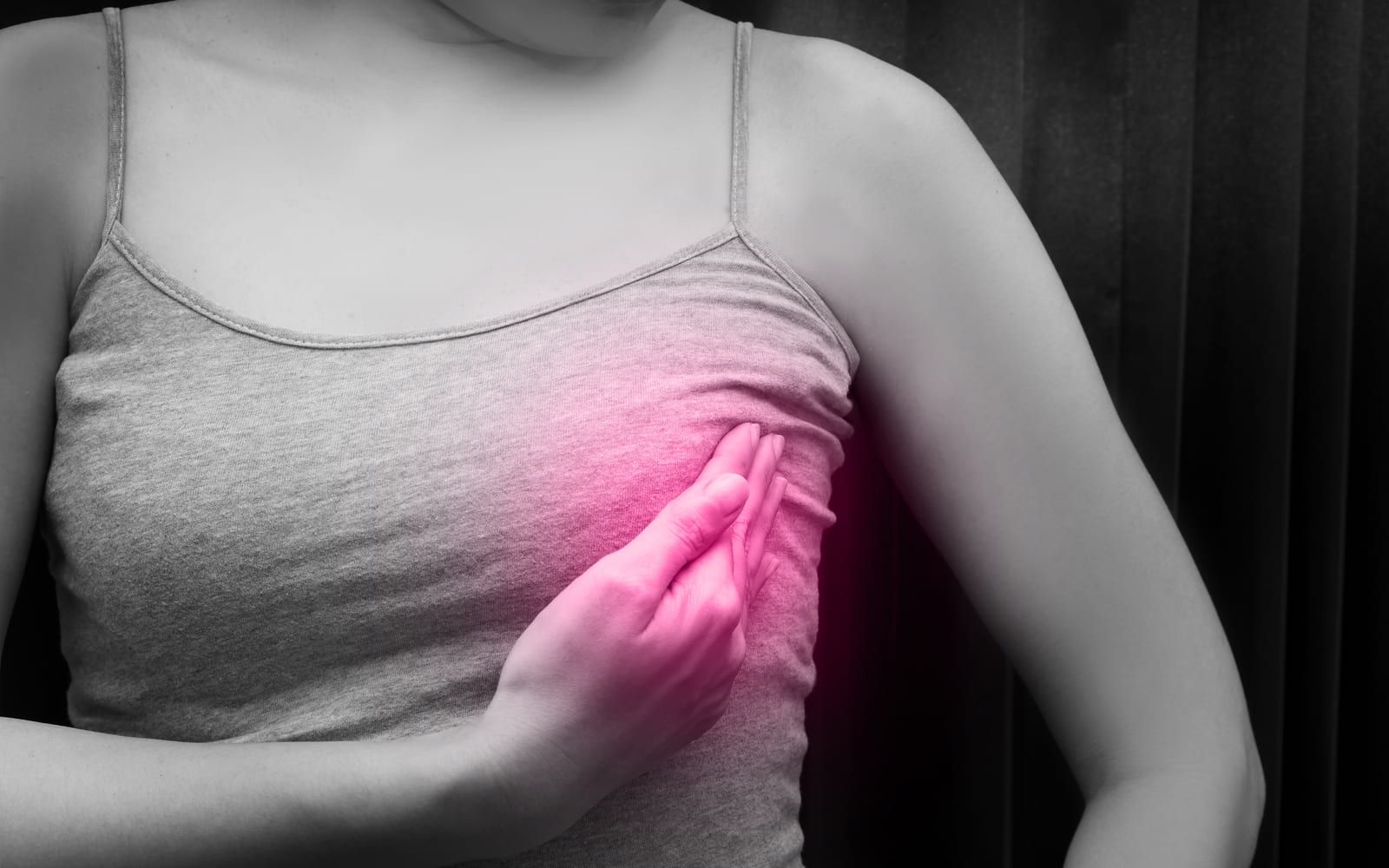As one of the most sensitive locations on the body, there are numerous reasons that your nipples may become tender or sore. From clothes that don’t fit right to hormonal changes and medical concerns, soreness can tell you a great deal. If you’ve been experiencing tenderness and want to know what you can do to avoid it, or if it’s time to schedule an appointment with a women’s health specialist, keep reading. We’ve put together this guide to the most common causes of sore nipples and what they can tell you.
Clothes That Don’t Fit Right
This is the most common non-medical cause of sore nipples. Clothes that fit too tightly are made of rough material, can’t breathe, or offer no support can all result in abrasion of the nipples, leaving them tender. Outside of changing your clothes, you may consider applying waterproof bandages or specialized nipple guards before you engage in activities that leave them sore. If they’ve already become chafed and sore, antibiotic ointment and a sterile gauze may help.
Skin Conditions
Another common cause of sore nipples is skin conditions ranging from chronic to acute. Dermatitis and rashes can occur as the result of substances often found in soaps, perfumes, skin creams, and similar products. Eczema can also a cause and is typically the result of genetics, dry skin, or medical concerns that impact the immune system. The correct treatment for these conditions will be determined by your specific case and typically require the guidance of a women’s health specialist.
Hormonal Changes
Sore nipples are a common symptom experienced as part of premenstrual syndrome. The increase in estrogen levels results in swelling breast tissue, with the pain-reducing once your period is over. This kind of discomfort can often be treated with Non-Steroidal Anti-Inflammatories such as Ibuprofen or Advil. This same kind of pain often accompanies pregnancy as the breasts grow and undergo changes in preparation for producing milk. Good fitting maternity bras are essential in reducing nipple and breast pain experienced during and after pregnancy.
Breastfeeding
Needless to say, nipple pain is a common part of the breastfeeding experience, especially when the baby first latches on. This type of pain typically ends quickly, just a few seconds after the baby begins feeding, but can continue to be painful if they latch on incorrectly. Cracking and bleeding can be a common result of this over a long enough period. As you and your baby get familiar with the feeding process, much of this discomfort should be eliminated. Some women find that they benefit from using ointment, lanolin, or balm on your nipples after nursing.
If you’re experiencing sore nipples and are wanting to learn more about managing your symptoms, contact us at Capital Women’s Rockville today. Dr. Judith Gurdian helps her patients address women’s health concerns from their offices in Rockville, MD, and is always welcoming new patients! Call immediately to schedule an appointment and discover what Capital Women’s Rockville can do for you!


